2012 CHANS Fellows aim to expand networks and knowledge at AGU Fall Meeting
Ten exceptional junior scholars studying coupled human and natural systems will have a unique opportunity to interact and network with scientific thought leaders at the 2012 American Geophysical Union Fall Meeting in December as part of the CHANS Fel...

Ten exceptional junior scholars studying coupled human and natural systems will have a unique opportunity to interact and network with scientific thought leaders at the 2012 American Geophysical Union Fall Meeting in December as part of the CHANS Fellows program.
"Some junior scholars who are interested in research on the interconnectedness between natural and human systems may not be able to attend conferences and other professional events without financial assistance," said Jianguo "Jack" Liu, principal investigator of CHANS-Net. “The Fellows Program was created by CHANS-Net with support from the National Science Foundation to help these promising scientists connect with other researchers at a prominent national event.
“This is the first year we’ve held CHANS-Net events at the AGU Fall Meeting and we’re looking forward to the new opportunities and interactions this event offers," Liu continued. Liu is a professor at Michigan State University.
"Providing these networking opportunities will help the fellows become the next leaders in human and natural systems research, education and application," said William McConnell, co-principal investigator.
The 2012 CHANS Fellows are:
- Giuseppe Feola
- Paige Fischer
- Cerian Gibbes
- Meha Jain
- Amy Lerner
- Marcia Macedo
- Michael Marshall
- Marvin Montefrio
- Kimberly Nicholas
- Kara Stevens
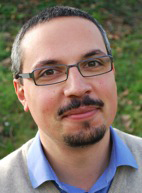 Giuseppe Feola, environment and development lecturer and Walker Institute for Climate System Research associate, University of Reading in England. An environmental social scientist, Feola is interested in how coupled human and environment systems dynamically interact through human actions, and how these interactions can be steered toward sustainable pathways. His research has three main themes: models of human actors in CHANS, theories of social-ecological change and integrated sustainability assessment. In a project on smallholder farmers in the Colombian Andes, Feola developed dynamic pesticide-use models to help underpin public policy to minimize health and environmental risks. His current research examines how the same farmers and their institutions are adapting to climate change, as well as the factors that are hindering or helping local communities become more sustainable.
Giuseppe Feola, environment and development lecturer and Walker Institute for Climate System Research associate, University of Reading in England. An environmental social scientist, Feola is interested in how coupled human and environment systems dynamically interact through human actions, and how these interactions can be steered toward sustainable pathways. His research has three main themes: models of human actors in CHANS, theories of social-ecological change and integrated sustainability assessment. In a project on smallholder farmers in the Colombian Andes, Feola developed dynamic pesticide-use models to help underpin public policy to minimize health and environmental risks. His current research examines how the same farmers and their institutions are adapting to climate change, as well as the factors that are hindering or helping local communities become more sustainable.
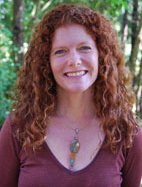 Paige Fischer, research social scientist, U.S. Forest Service Western Wildland Environmental Threat Assessment Center and courtesy professor, Oregon State University. Fischer’s research focuses on how people perceive and respond to ecological risks such as biodiversity loss, wildfire and climate change.
Paige Fischer, research social scientist, U.S. Forest Service Western Wildland Environmental Threat Assessment Center and courtesy professor, Oregon State University. Fischer’s research focuses on how people perceive and respond to ecological risks such as biodiversity loss, wildfire and climate change.
A current project is on the informal social networks people and organizations use to communicate about natural resource problems. Do the structures of these social networks affect how people adapt to environmental risks and changes? For example, are diverse networks more likely to spawn innovative solutions to natural resource problems than homogeneous networks?
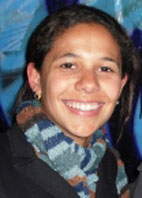 Cerian Gibbes, assistant professor of geography and environmental studies, University of Colorado-Colorado Springs. Gibbes' research is centered on human-environment interactions in land change science, focusing on Latin America, the Caribbean and Africa and the Southwestern United States.
Cerian Gibbes, assistant professor of geography and environmental studies, University of Colorado-Colorado Springs. Gibbes' research is centered on human-environment interactions in land change science, focusing on Latin America, the Caribbean and Africa and the Southwestern United States.
Her work incorporates land use and land cover change modeling, remote sensing and spatial statistics to understand relationships between climate, land and people.
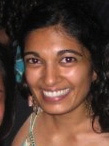 Meha Jain, ecology, evolution and environmental biology doctoral student, Columbia University. Jain’s research focuses on how farmers are adapting to climate change in India, as well as the effects of the farmers’ actions on their livelihoods and groundwater.
Meha Jain, ecology, evolution and environmental biology doctoral student, Columbia University. Jain’s research focuses on how farmers are adapting to climate change in India, as well as the effects of the farmers’ actions on their livelihoods and groundwater.
By combining techniques from geography, ecology, economics and anthropology, she is working to quantify the complex relationships between decision-making, natural resource use and land cover change.
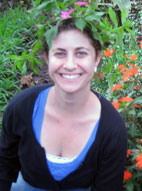 Amy Lerner, post-doctoral geography and human ecology researcher, Rutgers University. Her current research is examining the causes and consequences of silvo-pastoral landscapes – cattle pastures where farmers have let trees grow – in the southern Ecuadorian Amazon.
Amy Lerner, post-doctoral geography and human ecology researcher, Rutgers University. Her current research is examining the causes and consequences of silvo-pastoral landscapes – cattle pastures where farmers have let trees grow – in the southern Ecuadorian Amazon.
“In our project we’re asking, ‘What factors are associated with silvo-pastoral landscapes and what benefits could they have for the carbon budget?” Lerner said. “It’s not clear what is driving silvo-pastoral landscapes but ranchers leaving trees in their pastures could be a combination of demographic, ecological and cultural factors. Our hypothesis is that these landscapes have the potential to generate a carbon sink while at the same time providing an agriculturally-based livelihood for land owners, which is imperative given the pressure that we have on forests for food production.”
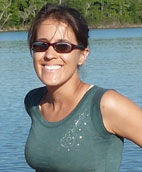 Marcia Macedo, post-doctoral fellow, Woods Hole Research Center; associate researcher, Amazon Environmental Institute. According to Macedo, producing enough food to feed a growing population, while conserving tropical forests and the ecological services they provide, will be one of the great challenges of this generation. As global demand for agriculture products increases, so will the pressure to convert tropical forests to agricultural production. Macedo is interested in understanding the ecological tradeoffs between forest conservation and food production in the Amazon’s agricultural frontier, as well as the consequences of land-use decisions for tropical streams.
Marcia Macedo, post-doctoral fellow, Woods Hole Research Center; associate researcher, Amazon Environmental Institute. According to Macedo, producing enough food to feed a growing population, while conserving tropical forests and the ecological services they provide, will be one of the great challenges of this generation. As global demand for agriculture products increases, so will the pressure to convert tropical forests to agricultural production. Macedo is interested in understanding the ecological tradeoffs between forest conservation and food production in the Amazon’s agricultural frontier, as well as the consequences of land-use decisions for tropical streams.
Macedo’s current research examines how large-scale deforestation alters the cycling of water and energy in Mato Grosso, Brazil. She is particularly interested in identifying management strategies that can help minimize the direct impacts of agricultural production on streams, as well as linking her research to the policies that ultimately determine land management on the ground.
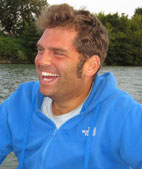 Michael Marshall, Mendenhall Research Fellow, U.S. Geological Survey. Marshall is broadly interested in how land surface and atmospheric processes affect agricultural societies.
Michael Marshall, Mendenhall Research Fellow, U.S. Geological Survey. Marshall is broadly interested in how land surface and atmospheric processes affect agricultural societies.
His current project for the U.S. Geological Survey combines hyper-spatial and spectral remote sensing with ancillary spatial data to estimate and evaluate crop water productivity for important crops in California’s Central Valley.
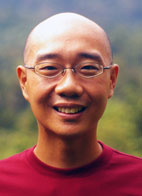 Marvin Montefrio, environment and natural resources doctoral student, State University of New York. His research stems from the interest among governments and private companies to integrate marginalized groups, especially indigenous people, into global commodity markets. Through his research, Montefrio has seen how upland farmers from diverse cultural backgrounds decide whether to engage in partnerships with governments and private firms to grow crops for biofuels and rubber.
Marvin Montefrio, environment and natural resources doctoral student, State University of New York. His research stems from the interest among governments and private companies to integrate marginalized groups, especially indigenous people, into global commodity markets. Through his research, Montefrio has seen how upland farmers from diverse cultural backgrounds decide whether to engage in partnerships with governments and private firms to grow crops for biofuels and rubber.
“I hope that my research will advance theories on the institutional aspects of resource management and decision-making in the context of social-ecological systems,” he said. “I also hope that it will contribute to current policy discussions on biofuels and rubber development.”
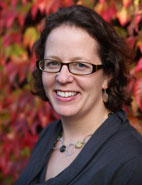 Kimberly Nicholas, assistant professor of sustainability science, Lund University Centre for Sustainability Studies in Sweden. Nicholas’ research aims to understand what human changes to the Earth’s climate and land surface will mean for the future of the globe’s ecosystems, as well as how human needs can be better balanced with sustaining the planet’s life support systems.
Kimberly Nicholas, assistant professor of sustainability science, Lund University Centre for Sustainability Studies in Sweden. Nicholas’ research aims to understand what human changes to the Earth’s climate and land surface will mean for the future of the globe’s ecosystems, as well as how human needs can be better balanced with sustaining the planet’s life support systems.
“I use observational, experimental, modeling and synthesis approaches to study how climate variability and change affect crop development, yields and quality, especially in the wine industry,” she said. “My interest in agriculture is rooted in five generations of my family’s farm in Sonoma, Calif.”
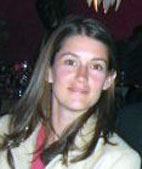 Kara Stevens, fisheries and wildlife doctoral student, Michigan State University. Stevens is studying the social and ecological dynamics of small-scale fisheries on the remote Miskitu Coast of Nicaragua. She’s examining the effects of fishing on a multi-species estuarine fishery, as well as the direct and indirect effects of market access.
Kara Stevens, fisheries and wildlife doctoral student, Michigan State University. Stevens is studying the social and ecological dynamics of small-scale fisheries on the remote Miskitu Coast of Nicaragua. She’s examining the effects of fishing on a multi-species estuarine fishery, as well as the direct and indirect effects of market access.
“I’m identifying how social networks, economic status and catch rates influence a fisherman’s change in harvest and management practices,” she said. “This includes things like using seasonal gear and enforcing sea tenure.
“I’m very interested in addressing challenges at the intersection of biodiversity conservation and economic development, especially during times of significant social and environmental change.”



 Print
Print Email
Email